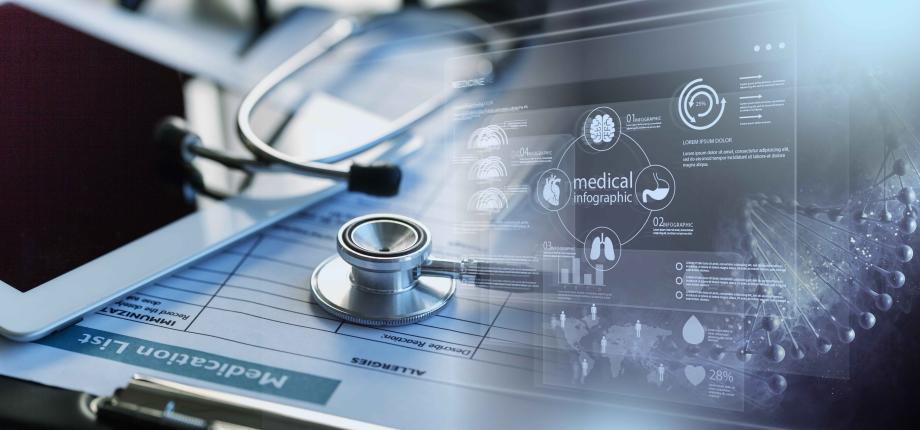The Foresight of HERA: Bridging the Gap Between Health and Security through Proactive EU Policymaking

‘Out of crisis comes opportunity.’ With these words, European Commissioner for Health Stella Kyrikades defined a new push to redefine the EU approach to health emergencies in a September 2021 address. At the forefront of this switch “from the ad hoc to . . . structural solutions” would be the Health Emergency Preparedness and Response Authority (HERA) – a new directorate general with the broad objective of preparing for and responding to cross-border health crises.
As is the case in the announcement of many new large-scale, policy-oriented structures, HERA made its debut more as a promise than a plan. The promise, however, was a welcome change. Among its motivating principles was the development of a new medical countermeasures intelligence platform (MCMI) designed to collect, compile, evaluate health trends and potential threats – a digital springboard from which EU policymakers could quickly and efficiently begin preventive or defensive measures. Called a potentially "future proof platform” in late 2022, this information technology (IT) platform idea had set the bar high even before its creation.
Now in late 2023, the height of the Covid-19 pandemic is behind us. Our eyes have turned to the Russian war in Ukraine, to new types of warfare from weapon technologies to hybrid warfare, including the potential of initiating pandemics or using digital technologies to pose threats to security systems and everyday people alike. The HERA and its MCMI platform, as in 2021, are promising symbols for the general shift in EU mentality towards proactivity rather than reactivity, but with our attention elsewhere, does it stand a chance to be more than a symbol of intent? As it stands today the platform’s early successes – especially in the context of an as yet incomplete IT design – show promise and ought to urge the EU and its member-states to channel more development efforts and political will into such proactive, foresight-based initiatives, that interlink EU policies, such as health and security nexus.
Zooming out momentarily, HERA’s responsibilities are to coordinate health matters in the EU, to generate closer relationships among member states (MS) and the health industry, to support R&D and stockpiling efforts on the MS and EU level, and to improve EU-wide health emergency procedures and infrastructure. Zooming back in, the MCMI platform can help to ensure strong foundations for these goals. Practically, this means “strengthening the mandates” of existing EU data collection mechanisms like those involved in the European Centre for Disease Control (ECDC) and the European Medicines Agency (EMA), and using collected information to establish phases of action with specific expectations of conduct in each. Put simply, the information gathering stage is vital not only to the foundation of HERA’s grandest goals but also to strengthen EU intelligence and foresight. Has this promising and in today’s geopolitical context necessary tool prioritized accordingly?
Where is IT?
After about a year of discussion and strategising, the European Commission published the State of Health Preparedness Report, which, among other things, clearly outlined 3 health areas of priority to monitor (pathogens with a high potential to become pandemics, CBRNs and antimicrobial resistance). Additionally, the (intended) functioning of HERA itself would differ based on current health events. Based on the information passing through the MCMI platform, HERA would either remain in preparedness mode (as it was and continues to be today) or shift into in crisis mode. Put simply, preparedness mode indicates that HERA at large is collecting lists of possible medical countermeasures against potential threats, identifying areas of vulnerability and creating priority R&D lists. HERA is also currently working with MS to establish a catalog to categorize medical countermeasures, from which a common hierarchy of action is intended to emerge. Again, these are all steps in the right direction – a step towards common definitions and prioritisation of shared information already puts the EU ahead of where it was at the outbreak of the Covid-19 pandemic. Yet, in late 2022, the platform’s IT arm remained quietly absent.
At this stage, without a clear IT component, the MCMI platform was lacking shape. For example, the list of potential health threat categories published in 2022 likely came predominantly from other existing EU agencies and international networks dealing with information gathering, dissemination and health – like the ECDC’s EpiPulse portal, the WHO, the Africa CDC, and the foreign information manipulation and interference (FIMI) toolbox – instead of the planned new system. Despite its length, the State of Health Preparedness Report of late 2022 could only speculate as to the added benefits a potential IT arm could offer HERA. Underneath the subsection on threat detection sits the weighty line: “Build the Medical Countermeasures Intelligence Platform (HERA MCMI Platform) in 2023.” Two years in and the plan, as grand and thorough as it was, was still only a plan.
Early Success Despite Imperfections
Not until April 2023 did part of the MCMI platform get a name. ATHINA, or the “Advanced Technology for Health INtelligence and Action IT System,” would come to define the platform’s previously elusive IT arm. With this naming came a call from the European Health and Digital Executive Agency (HaDEA) to any contractor form the IT sector to create and develop the platform, with an application deadline of July 4, 2023 and delivery of “first module” expected some nine months after the signing of the contract. Published in a more detailed guide for potential contractors, ATHINA must be designed to “pick up signals on threats requiring medical countermeasures (MCM) . . . in preparedness times,” create threat assessments and possible responses, and monitor supply chains for areas of susceptibility.
Despite the persisting IT gap, HERA appears functional. After first signs of the Monkeypox virus (MPXV) appeared in May 2022, HERA switched into crisis mode - which proved to be a test its capabilities to date. For the remainder of the year, it was able to procure 350,000 doses of the vaccine for immediate use in the EU, with a further 2 million doses planned to aid in stockpiling efforts. While the Monkeypox outbreak was smaller-scale than Covid-19 from the beginning, HERA’s test of crisis mode has shown that in at least small-scale outbreaks, countermeasures can be sourced and secured quickly. To lessen the medical burden of the crisis in Ukraine, HERA is currently facilitating the availability of everyday medicines, as well as medicines to treat CBRNs in war-impacted areas by working with rescEU and the new medical stockpile for CBRNs in Finland.
These initial successes are promising, but the strategies used to achieve them may struggle to remain sustainable for longer lasting crises without a strong foundation of IT that not only collects information from other EU agencies, but also organises, prioritises and filters it to generate a best possible strategy that can work for the greatest number of MS. Plenty of IT platforms exist at the EU level to process health data, and even to suggest medical countermeasures, but ATHINA will be built specifically to bridge the gap between crises and countermeasures with actionable solutions. In short, if ATHINA is designed successfully, it will address the “what” but also the “how” of the solution. Only time will tell how the platform is designed, and if artificial intelligence will become a cornerstone of the prediction process. Such a development would necessitate closer examination of the regulation of AI on the EU level, and of the security concerns inherent to extensive use of AI in such vital new initiatives. These, however, are simply potential new hurdles.
Wisdom and Action (Conclusions)
What is known is that HERA’s MCMI platform, including ATHINA, are still in their infancy. What we see of HERA’s successes with MPXV and in Ukraine thus far is only the tip of the iceberg while most of the development is occurring behind the scenes. For now, we must wait to see who will take up the responsibility of developing the platform, but we need not wait passively. The MCMI as a whole is even less widely known than the concept of ATHINA – but is perhaps the factor that can propel HERA’s effectiveness to new heights in coming crises. Athena, the namesake of the soon-to-emerge IT system, represents wisdom. The emergence of such a system is proof of a new proactive and preventative shift taking hold in the EU, a departure from the reactive policymaking of the past. However, the gray areas that have persisted from the beginning of the planning stage lead the MCMI to remain inaccessible as a concept – a far cry from the promise of involving the citizens of MS in the sharing and receipt of health data. The wisdom which went into creating ATHINA is commendable. But for EU Agencies and tools like these to gain the broad support of the national capitals and the understanding of citizens, much more effort is needed to both explain and promote them. Without guiding the narrative on these new platforms in a way that is relatable to Europeans, promising tools like HERA run the risk of joining the thick layer of bureaucracy that cause EU policymaking to seem inaccessible to those it impacts most. Further, without strengthening, relating and promoting HERA and its intelligence and foresight tools, the Agency falls as an easy pray to populists seeking easy domestic gains by showcasing ‘Brussel’s inefficiency and ineffectiveness.’
Health policy development seldom has the political impetus to compete with greater geopolitical concerns. It is therefore up to the EC not only to create more dialogue about its directorate generals and health intelligence gathering, but to create connections between the relatively obscure world of heath IT and the far more recognizable dialogue on cybersecurity concerns. ATHINA and the MCMI can easily become a truly “future proof” system which improves on even recent successes by HERA, but only if the EU commits to reframing health – and specifically health emergencies – as issues of European security.
* Funded by the European Union. Views and opinions expressed are however those of the author(s) only and do not necessarily reflect those of the European Union or EACEA. Neither the European Union nor the granting authority can be held responsible for them.

Center for Global Europe Trainee